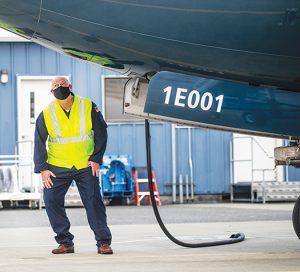Bloomberg
Steve Dickson, who led the US Federal Aviation Administration (FAA) through a tumultuous period following fatal crashes of Boeing Co’s 737 Max and the Covid-19 pandemic, is stepping down from the agency at the end of March.
Dickson informed FAA’s employees in an email of his plan to depart less than three years into his five-year term. He called the decision “very difficult,†but said he was motivated by the long periods he’d been forced to spend away from his family in Georgia as a result of the job and the pandemic.
“Although my heart is heavy, I am tremendously proud of everything we have accomplished together over the past several years,†Dickson said. “The agency is in a better place than it was two years ago, and we are positioned for great success.â€
Dickson, 64, was appointed head of the FAA by President Donald Trump and sworn in on August 12, 2019. That was about five months after the second of two crashes of the 737 Max, which killed 346 people. Dickson was thrust front and center as Congress held contentious hearings into the agency and its role in certifying the jet.
“We are grateful for his years of service to our country and his lifelong dedication to making sure our aviation system is the best and safest in the world,†Transportation Secretary Pete Buttigieg said in a statement.
Only months after taking
the job, Dickson personally chastised Boeing’s then-Chief Executive Officer Dennis Muilenburg and other top company officials, a dramatic change of course for an agency accustomed to a close relationship with Boeing. Muilenburg was soon out of a job and the company’s relationship with the FAA changed dramatically.
Boeing’s revisions of the
737 was more extensive and took many more months than
it originally planned. Agency safety workers took over
more inspections of the plane and the FAA issued several enforcement actions against the planemaker.
Crises seemed to trail Dickson into the job. When the coronavirus erupted in early 2020, consumer travel plunged, forcing the FAA to adapt its safety oversight as the industry lost as much as 96% of its customers and mothballed jets by the thousands.
 The Gulf Time Newspaper One of the finest business newspapers in the UAE brought to you by our professional writers and editors.
The Gulf Time Newspaper One of the finest business newspapers in the UAE brought to you by our professional writers and editors.
